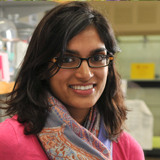
Second Mentors
We encourage you to also find a "second mentor" to fulfill all your mentoring needs. A second mentor can be a faculty member, senior postdoc, or even an alumnus who provides scientific and career advice from a distinct perspective, and you can (and should) have more than one. Many graduate students also volunteer their time as peer mentors, offering advice and support from a different perspective. Most mentors are found informally, but more and more groups are being formed to bring people together and to help mentor others. Some examples are listed below.
- Student Outreach Alumni Resources (SOAR)
SOAR is designed to foster mentorship opportunities across the Stanford Biosciences community. It uses a multilevel mentorship structure to involve junior and senior graduate students, postdocs, alumni, and faculty. - Stanford Biosciences Student Association (SBSA) Peer Mentor Group
First-year Biosciences students are mentored by older students. Information is sent out each year through the SBSA listserv. - SBSA/Biomedical Association for the Interest of Minority Students (BioAIMS) Fellowship Mentorship Program
One-on-one mentoring for fellowship applications. Contact Natalie Chavez (email) for more information. - Palo Alto Association for Women in Science (AWIS) Mentoring Program
This mentor/protégée matching program pairs you with a more senior scientist to meet the mentoring needs you describe. This is a great networking circle—many former Biosciences students have found job leads through AWIS. - Women in Science and Engineering
Female graduate students and postdocs share support and advice in small discussion groups. - Mentors in Teaching (MinT)
Experienced TAs provide advice and support for current TAs. - Community Academic Profiles (CAP) Network
Log in to the CAP (Community Academic Profiles) Network to search for a mentor. (Once you log in, the link to "Find a Mentor" will appear in the top menu bar.) Many faculty members and postdocs have volunteered to serve as mentors.

"It's been really useful to have someone I can talk to who isn't judging my work directly, and who isn't someone I have to worry about when he is advising me on what to do next in my project. That mentoring has been quite useful to me."
—Michelle Rengarajan
